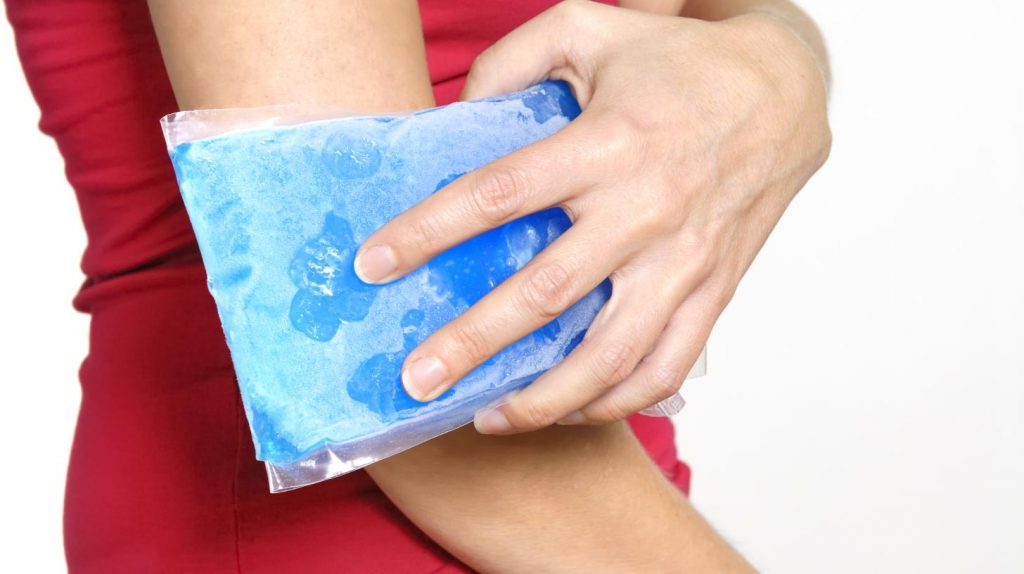Table of Contents
The National Institute of Health says that approximately 10% of people experience hip pain. As people age, they are more likely to experience hip pain, and 14.3% say they experience hip pain on most days. Acute or chronic hip pain impacts the quality of life in numerous ways, from restricting movement to disrupting sleep. There are varying treatment options for hip pain, ranging from different types of injections to nerve blocks. The best medical treatment for hip pain treats the underlying cause of the pain, so doctor recommendations depend on first identifying the source of the hip pain.
Relieving Hip Pain
Hip pain can be a one-time event due to trauma, a constant pain associated with a disease like osteoarthritis, or an intermittent pain that comes and goes. The doctor recommended hip pain relief treatment that targets the root cause of the pain, beginning with the least invasive option.
The following are seven common treatments for hip pain.
1. NSAIDs and Analgesics
Over-the-counter or prescription-strength NSAIDs address inflammation and pain. By reducing inflammation, the pain is lessened. NSAIDs are available as capsules and topical solutions. There are also now over-the-counter NSAIDs formulated specifically to relieve joint pain from arthritis. Analgesics are different from NSAIDs in that they target pain relief. People unable to take NSAIDs may try analgesics.
2. Home therapies
In mild cases of short-term (acute) hip pain, cold packs may reduce swelling. If you experience chronic pain, heat pads can help relieve stiffness. Apply the cold pack or heat pad several times a day for 15-20 minutes each time. The doctor may recommend physical therapy, home hip stretching exercises, and weight management.

3. Corticosteroid injections
If the hip pain is due to inflammation, a steroid injection may help reduce pain. The inflammation could be due to arthritis, injury, obesity, or performing work duties that place stress on the hip. A corticosteroid is injected directly into the hip joint. This treatment can relieve inflammation within days and may last for several months.
4. Trigger point injections
Trigger point injections can target myofascial pain and muscle spasms in the musculoskeletal system. The injections help the muscle relax, relieving the tension causing pain and reducing inflammation. These are also helpful when the hip pain is referred pain, meaning the pain in the hip originates in muscles in an area outside the hip. The injections use a blend of medications that may include an anesthetic like lidocaine or a corticosteroid like triamcinolone or dexamethasone.

5. Nerve block
An obturator (muscles in front of the pelvis and involved in hip movement) or femoral (muscles in front of the thigh) block is a treatment for chronic hip pain. An anesthetic or other numbing agent is injected into or close to the nerves involved in hip movement. It then blocks the transmission of pain signals. This treatment may be effective when other treatments have been unsuccessful.
6. Radiofrequency ablation
This procedure might also be selected when it is believed that the femoral and obturator nerves are causing the hip pain. It can be a good choice for people experiencing hip pain and who cannot have or do not want surgery, or when pain persists after surgery. The procedure involves using radio waves that create heat. The heat is used to target nerves or other tissues that are the source of pain. By disrupting pain signals, chronic pain may be reduced for months or years.
7. Viscosupplementation
Viscosupplementation involves the doctor injecting hyaluronic acid into the hip joint’s synovial fluid. Hyaluronic acid is a gel-like substance that acts as a lubricant, used to reduce stiffness and pain associated with osteoarthritis. The joint has natural synovial fluid that is hyaluronic acid, so this treatment restores its natural properties. It can effectively reduce pain.
Hip Pain is Treatable
Anyone living with hip pain that is reducing the quality of life should consult a pain doctor. There are many minimally invasive procedures available today that bring relief, and technology continues to advance pain treatments. If these procedures are not effective, surgical intervention may be an alternative option. Surgery is always the last resort. In many cases, hip treatment is combined with home treatments and lifestyle modifications, such as weight loss, to reduce pressure on the joint. With so many treatment options, there is no reason to live with the pain anymore.
Sources
- https://pmc.ncbi.nlm.nih.gov/articles/PMC8022067/
- https://www.researchgate.net/publication/11391512_How_common_is_hip_pain_among_older_adults_Results_from_the_Third_National_Health_and_Nutrition_Examination_Survey
- https://www.ncbi.nlm.nih.gov/books/NBK559023/
- https://www.ncbi.nlm.nih.gov/books/NBK542196/
- https://pmc.ncbi.nlm.nih.gov/articles/PMC5322453/
- https://apm.amegroups.org/article/view/125072/html
- https://pmc.ncbi.nlm.nih.gov/articles/PMC2228384/
